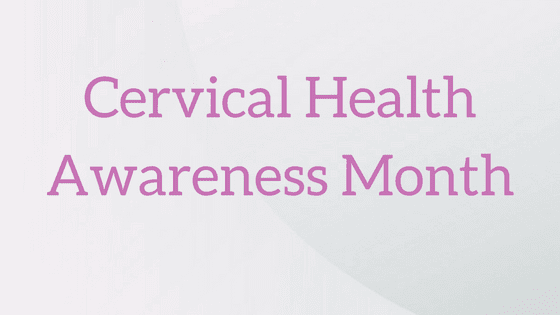
Common Cervical Health Questions
Every year in the UK around 3,000 women will be diagnosed with cervical cancer. As January is Cervical Health Awareness Month, Consultant Gynaecologist Mr Pisal shares answers to the frequently asked cervical health questions.
1. Many cervical cancer symptoms overlap with other conditions. What symptoms are distinct to cervical abnormalities and cancer?
It is important to remember that cervical cancer is very rare especially in women who have had regular smears. Red flag symptoms would include bleeding after sex, bleeding between periods and persistent vaginal discharge. If you are concerned for any reason do not hesitate to see your GP or practice nurse for a quick check up.
2. What should women expect to happen for treatment following a diagnosis? What are their options?
More than half the cervical cancers diagnosed in the UK are very early (microinvasive or stage 1A) and are treated by local treatment by removing the cells. This treatment can be carried out either under local or a short general anaesthesia.
If the stage of cancer is stage 1B or more, more extensive surgery may be needed. This will depend on exact circumstances and other factors such as a desire for further fertility. If the cancer cells have gone outside the cervix, additional treatment with chemotherapy and radiation may be needed.
3. Is it possible for cervical cancer to develop during the 3 year cervical smear gap and how accurate are smear tests?
Cervical cancer takes a long time to develop (approximately 15 years) which means that one would have five opportunities (smear tests) for detecting any abnormalities. This makes it safe to have a smear test every three years.
Having said that, sometimes a smear test can be falsely negative as it is a screening test and not a diagnostic test. A negative smear test means ‘low risk’ and not ‘no risk’. It is therefore important to see your GP, gynaecologist or practice nurse, if you have any of the ‘red flag’ symptoms mentioned above.
4. What are the options if a woman missed her HPV vaccination at 12/13 years old?
This is available privately in certain circumstances, please visit our page on HPV vaccination.
5. Are their any support groups or networks you could recommend?
Jo’s Trust provides invaluable support and reliable, validated information to women regarding cervical screening, abnormal smears as well as cervical cancer. It is an amazing charity and London Gynaecology has actively fundraised for Jo’s Trust over last 3 years.
If you have any concerns about your cervical health, don’t hesitate to contact your GP, gynaecologist, or practice nurse, and don’t forget to ensure you are up to date with your smear test. Call us on 0207 10 11 700 or order your HPV DNA self-test kit here.



